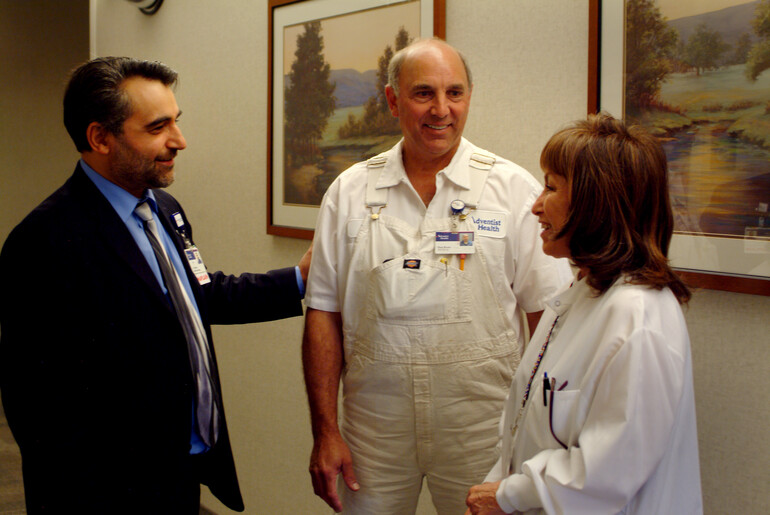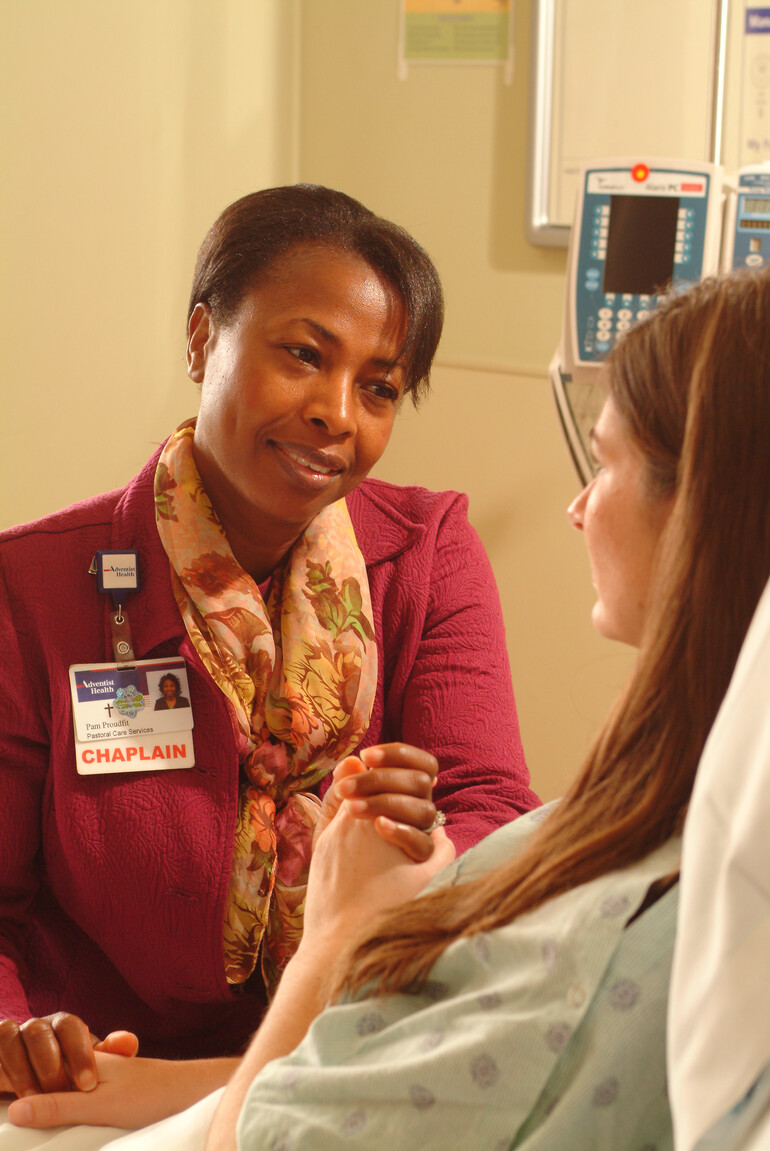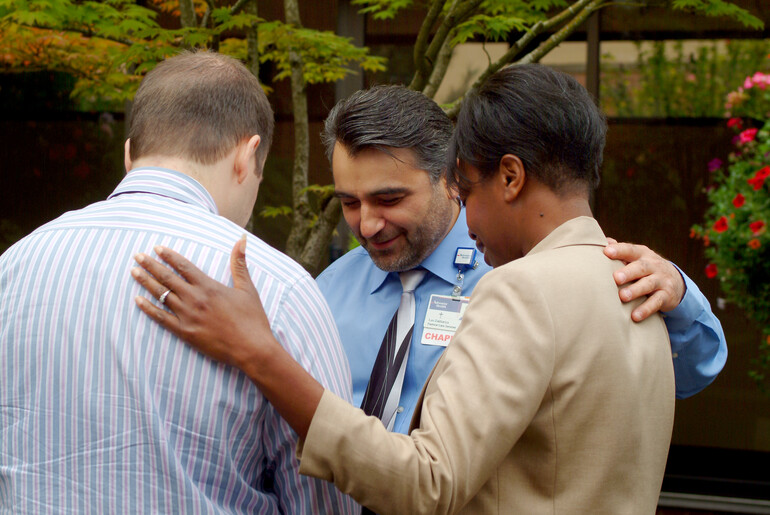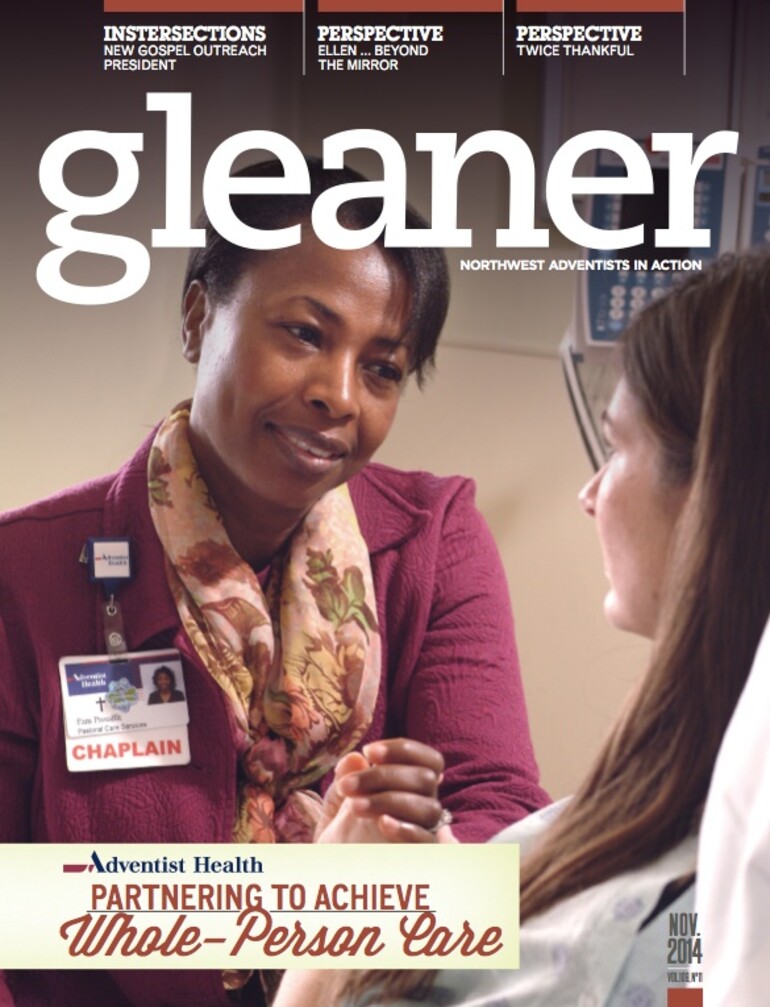During his 10 years as a pastor, Leo Zakhariya, now a staff chaplain at Adventist Medical Center (AMC) in Portland, Oregon, was confident he was fulfilling parishioners’ needs. But after taking his first unit of clinical pastoral education (CPE), he says, “It was like the scales fell off my eyes.”
Zakhariya says the training has helped him communicate more effectively and has better equipped him to help people find solutions to difficult or unusual spiritual needs.
“It’s another way of ministering,” he explains. “You connect with people in the deepest way on their spiritual and emotional journey. You feel their pain, go through their grieving moments and walk with them out of that dark place. Instead of throwing a lifesaver to a sinking person from a boat, you jump in and hang the lifesaver around him. You feel the water, you feel the fear of drowning, and you help him rescue himself.”
This form of theological education seeks to improve the quality of ministry and pastoral care for spiritual caregivers, explains Paul Crampton, Adventist Health assistant vice president for mission and spiritual care. Adventist Health is encouraging hospitals to offer CPE to better prepare the next generation of chaplains, build relationships with community clergy, offer spiritual support for Adventist Health clinics and outpatient entities, and fill a growing need for community education in this field. AMC is considering a CPE program; San Joaquin Community Hospital (SJCH) in Bakersfield, California, and White Memorial Medical Center in Los Angeles launched CPE programs earlier this year.
CPE students — who can include pastors, chaplains and seminary students as well as nurses and physicians — learn how to listen and attend to people more effectively. They learn to establish rapport, respond to both verbal and nonverbal communication, and better understand what they’re observing during encounters. Their own personal growth is emphasized.
“CPE creates the opportunity to make people whole,” says Tony Andrews, SJCH pastoral care and clinical pastoral education director. “That’s what God came here to do: restore the broken heart and heal the soul.”
A CPE class usually includes case study discussions and lectures on crisis intervention, theology, grief, therapy and similar topics, Andrews reports, as well as group dynamics that help students learn about themselves. One “unit” of CPE equals about 400 hours of learning over the course of four months. Most professional chaplaincy programs require four units of CPE. Adventist Health encourages two to four units for community clergy interested in working with Adventist Health hospitals and clinics.
And while Adventist Health’s CPE programs don’t focus exclusively on helping people during health crises, it is an important component.
“In my first weekend of pastoral ministry I went with my senior pastor to the hospital intensive care unit as one of our parishioners was taken off life support,” says Matthew Kirk, Bakersfield Hillcrest Church associate pastor. “And I realized I was totally ill-equipped to deal with people in active crisis. I stood there shellshocked, and I shut down emotionally because I couldn’t handle it. I was there physically but not relationally. I didn’t know what I was supposed to be doing, and I didn’t have anything to say.”
Kirk enrolled in SJCH’s CPE program in January; he’s now nearing the end of his second unit. “When I went to CPE, it was like fireworks going off in my head,” he says. “I’m becoming more acutely aware of who I am and how I interact with others, including when I’m starting to react emotionally rather than trying to understand. I’m learning new communication patterns and how to communicate effectively, as well as how to be sensitive to and identify relational dynamics among the people involved."
The program offers unique perspective. “CPE is about recognizing that you can be in any situation and make a huge impact on individuals,” Kirk continues. “That impact isn’t tied to your knowledge, skills or ability; it’s tied to your authentic and deep commitment to making that person a priority.”
Adventist Health hopes CPE will enable local clergy to be more effective in meeting the health needs of their constituents, Crampton says. “By providing CPE to local clergy, especially our Adventist pastors, we can collaborate in more fully ministering to all those needing spiritual care," he adds.













